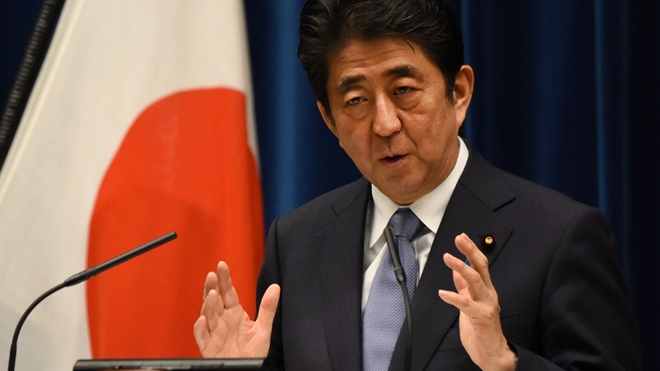Abe to push reform of Japan's pacifist constitution after election win
- 3rd Vietnam – Japan Culture and Trade Exchange in Can Tho announced
- Vietnam welcomes Japanese investment: PM
- At least three injured, seven missing after U.S. Navy destroyer collides with merchant vessel off Japan
Abe’s Liberal Democratic Party-led (LDP) coalition won a combined 312 seats, keeping its two-thirds “super majority” in the 465-member lower house, local media said.
A hefty win raises the likelihood that Abe, who took office in December 2012, will secure a third three-year term as LDP leader next September and go on to become Japan’s longest-serving premier. It also means his “Abenomics” growth strategy centered on the hyper-easy monetary policy will likely continue.
 |
| Abe to push reform of Japan's pacifist constitution after election win |
Final official results from the election, which coincided with an approaching typhoon, are expected early on Monday.
The U.S.-drafted constitution’s Article 9, if taken literally, bans the maintenance of armed forces. But Japanese governments have interpreted it to allow a military exclusively for self-defense.
Backers of Abe’s proposal to clarify the military’s ambiguous status say it would codify the status quo. Critics fear it would allow an expanded role overseas for the military.
Abe said he would not stick to a target he had floated of making the changes by 2020. “First, I want to deepen debate and have as many people as possible agree,” he told a TV broadcaster. “We should put priority on that.”
The LDP’s junior partner, the Komeito, is cautious about changing the constitution, drawn up after Japan’s defeat in World War Two. Several opposition parties favor changes, but do not necessarily agree on details.
REFERENDUMS RISKY
Amendments must be approved by two-thirds of each chamber of parliament and then by a majority in a public referendum.
“Now that pro-constitutional change parties occupy more than two-thirds of the parliament, the constitution will be the most important political issue next year,” said Hidenori Suezawa, a financial market and fiscal analyst at SMBC Nikko Securities.
“And as we saw in the U.K. ... a referendum could be tricky. So while Abe is likely to be prime minister for the time being, it is too early to say whether he can stay in power until 2021.” Abe declined to say if he would run for a third term.
Abe had said he needed a new mandate to tackle a "national crisis" from North Korea's missile and nuclear threats and a fast-aging population, and to approve his idea of diverting revenue from a planned sales tax hike to education and child care from public debt repayment [reut.rs/2yC0pma].
He called the poll amid confusion in the opposition camp and an uptick in his ratings, dented earlier in the year by scandals over suspected cronyism and a perception he had grown arrogant after nearly five years in office.

